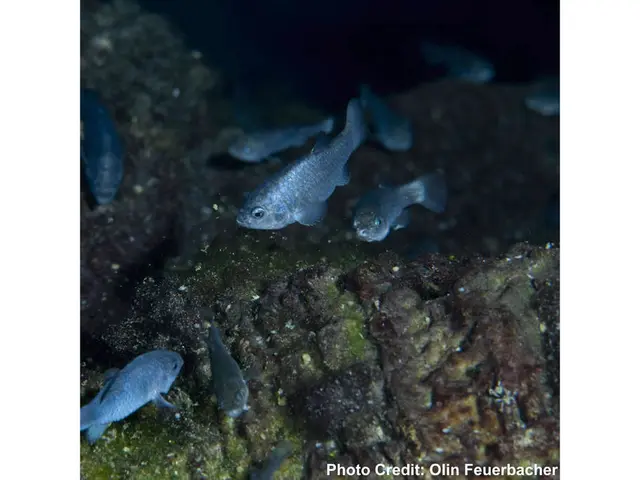Banks in Germany Grapple with Plastic Obsession
In a recent report by NGO Facing Finance, 12 large German banks, including Deutsche Bank and ING, have been accused of inadequately addressing the plastic crisis. The report highlights the financing need of 55 billion euros for a transition to a circular economy, and suggests great opportunities for banks in this area.
Deutsche Bank, however, did not publicly support the failed UN plastic summit in August. The bank has also sold its stocks in various companies, but it has provided over one billion euros in loans to the world's largest producers of single-use plastic raw materials over a period of just over three years.
According to the report, Deutsche Bank's measures to combat the plastic crisis are limited to reducing plastic waste at its own locations and using recycled PVC plastic for credit cards. The bank's perspective is criticized by Facing Finance, as it treats the issue mainly as a waste disposal problem rather than addressing the entire plastic lifecycle, including raw material extraction and production.
Deutsche Bank declined to comment on the findings regarding its connections with these corporations. The bank acknowledges the environmental threat posed by plastic but views it only as a waste management issue.
On the other hand, ING supports the UN's plastic agreement and its implementation in the financial sector. The Dutch parent company of ING has been found to have connections to single-use plastic giants, but it stands out positively in the report. ING is engaged in dialogue with its corporate clients to find solutions, but the report criticizes that its plastic guidelines are not sufficient.
ING is aware of the risks associated with plastics throughout their entire lifecycle and recognizes its own responsibility. Facing Finance calls on all banks to establish clear guidelines for handling plastics, including making their "plastic footprint" transparent, reducing plastic usage, combating toxic chemicals in plastics, and advocating against deregulation in this area.
It is important to note that direct investments are not part of the report's evaluation of banks. Luca Schiewe of Facing Finance states that without loans from banks, companies cannot explore new oil fields or expand production, as oil is a raw material used in plastics production.
Seven out of the twelve banks, including ING, have connections with single-use plastic giants. However, ING's position is seen more favourably in the report compared to Deutsche Bank, as it recognizes the need for broader initiatives like the failed UN plastic summit in August.
ING did not respond to questions from the website regarding its stance on the report's findings. The Umweltbundesamt, which funded the report, states that there are great opportunities for banks in the transition to a circular economy, and that banks have a crucial role to play in financing sustainable solutions.
Read also:
- Two farmers in Zambia take legal action against two firms with Chinese connections, alleging an ecological disaster caused by their operations.
- Deepening EU-India relations despite apprehensions regarding Moscow connections
- Ongoing Transition Towards Cleanliness
- Leading European Cities Pioneer Electric Vehicle Charging Infrastructure: Amsterdam and London Take the Front Row







